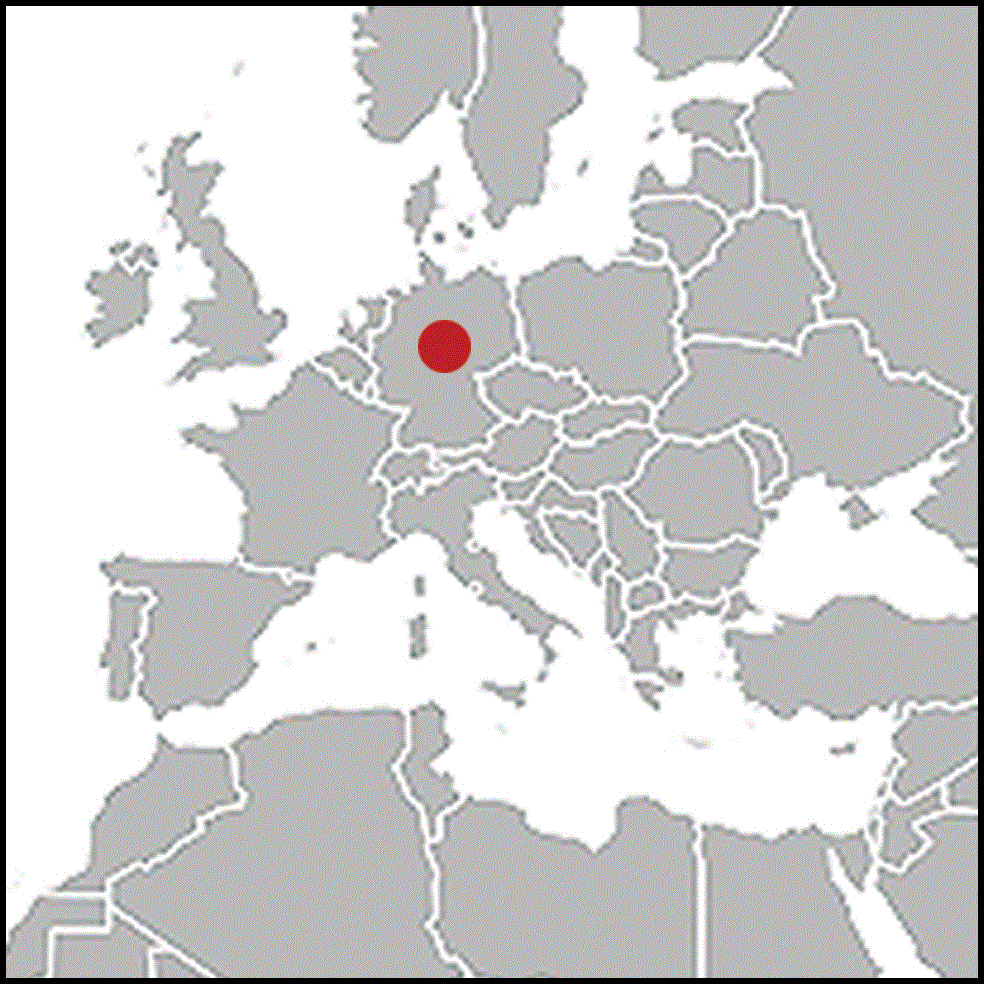Habemus Europam
VATICAN CITY/MUNICH (Our own report) The new head of the Roman Catholic Church sings the praises of Europe as the ,,Christian West"and sees the present EU as underpinned by a ,,shared concept of empire", an idea derived from Charlemagne (who lived in Aachen) and, according to the Holy Father, renewed after the Second World War by the German Federal Chancellor Konrad Adenauer. Many Germans work for the Bavaria-born Pope, occupying ,,key positions in the Curia". Both Catholic laypeople and international critics are worried by, and raising questions about, a Germanocentric Papacy obviously close to ultra-nationalistic elements. One of their concerns is the new Pontiff's life history. Joseph Ratzinger served in an anti-aircraft unit that protected a BMW factory making armaments for the Nazis, was in the occupying forces in Hungary, and was later accused of ,,theological anti-Semitism". Prominent politicians in Berlin are urging their countrymen to ,,take pride"in there being a German Pope.
The German press oozes confidence, stating that ,,bishops and cardinals from the Federal Republic exercise more power than ever in the Vatican", the Hamburger Abendblatt reporting that they are ,,disproportionately well-represented in important decision-making positions", citing as examples the influential positions held by Walter Brandmüller (described as the Vatican's chief historian), Cardinal Walter Kasper and Archbishop Paul Josef Cordes. 1)In an interview broadcast by the German media immediately after the papal election, Cordes stressed that having a German Pope would enhance Europe's importance in the worldwide Catholic Church.
Holy
The new Pope, with a worldview limited to the European continent, recommends as the foundational legend of the EU the myth of its derivation from the Holy Roman Empire, which became ,,of the German Nation". According to this mythology, the first German Federal Chancellor, Konrad Adenauer, and his Italian counterpart Alcide de Gasperi were acting as the agents of medieval Franks. 2)De Gasperi, formerly a collaborator with Mussolini, became a front man for the American secret services and, in the 1950s, remilitarised Europe as a member of NATO. 3)Ratzinger regards the post-war politician Robert Schumann as another progenitor of the new Europe; Schumann organised the 60th German Catholic Congress in 1913 and is a candidate for beatification by the Holy See, process in the hands of the Congregation for the Causes of Saints. With the German Jesuit Fr. Peter Gumpel as its head, and Ratzinger as Pope Benedict XVI, Robert Schumann's canonisation is on the Papal agenda.
Impossible
Gumpel's responsibilities also include assessment of the cause of a former Papal Nuncio in Berlin who went on to become Pope Pius XII. An enthusiast for German culture, he has for 40 years been charged with neglecting to take action that could have prevented genocide, despite having full knowledge of the Nazis' extermination policies. Under Gumpel, the present-day congregation vehemently defends Pius XII against this accusation. Critical observers of Ratzinger's career in the Curia claim that the new Pontiff echoes ,,Hitler's Pope" 4), Pius XII, having asserted in 1987 that ,,the Jewish scriptures and Jewish history are fulfilled solely in the person of Jesus Christ", that is, exclusively in the Christian faith tradition. 5)Ratzinger, who witnessed anti-Semitic and anti-Socialist violence, denies that he himself could have done anything about the Nazis' persecution of his fellow citizens, justifying his conduct by the assertion that it was, unfortunately, ,,absolutely impossible"to resist. 6)In the Nazi era, many Catholics paid with their lives for their opposition to the regime and to German militarism, one of them being Michael Lerpscher from Allgäu, a farmworker and pacifist out of religious conviction, who was beheaded in 1940. 7)
A Mass for Europe
Both Ratzinger's sources of historical inspiration and his political perspectives correspond to those of some ultra-nationalist thinkers on German foreign policy; the German Paneuropa-Union (PEU) claims the new Pope as a political ally and to have won the 1979 European elections with his help. Ratzinger, then a Cardinal, had celebrated in Munich's Cathedral of Our Lady a ,,Mass for Europe"after what was described by the PEU 8)as ,,the greatest rally for the European elections anywhere on the European continent". Like Ratzinger and the PEU, influential figures in the intellectual orbit of German right-wing extremism believe in the idea of the ,,Holy Roman Empire", which, they believe, lives on in the EU and must be welded together to become a Christian-Germanic supranational bloc. The election of this pope gives a considerable boost to these tendencies in Germany, which are also espoused by many Members of the European Parliament. 9)
1) Deutscher Einfluß im Vatikan; Hamburger Abendblatt 07.04.2005
2) Joseph Cardinal Ratzinger: Europe. Seine geistigen Grundlagen gestern, heute, morgen; www.bayern.de
3) see also Founding Fathers
4) Deutscher Einfluß im Vatikan; Hamburger Abendblatt 07.04.2005
5) Cardinal Ratzinger Divides Germans; New York Times 15.04.2005
6) Papal hopeful is a former Hitler Youth; The Sunday Times 17.04.2005
7) Jakob Knab: Das Lächeln des Esels, Blöcktach, 1987
8) Bernd Posselt: 80 Jahre Paneuropa. Eckstein einer neuen Weltordnung; www.ronsperg.de/Coudenhove3.htm
9) For the Members of the European Parliament belonging to the Paneuropa-Union.
